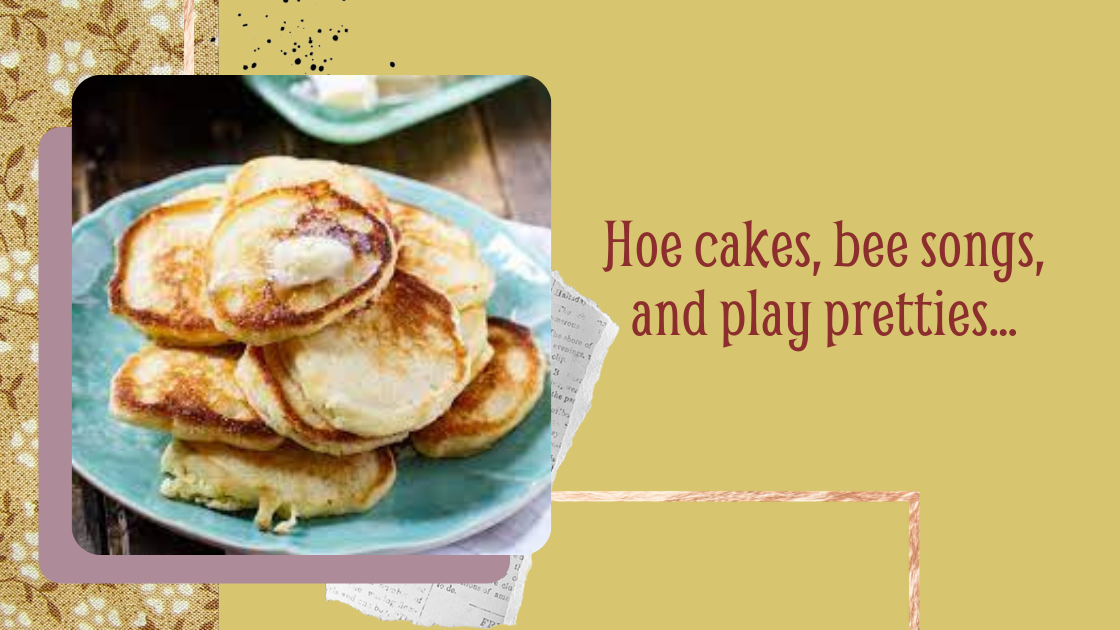Anybody who knows me knows that I practically worshiped my grandmother. She was born in 1898 in a tiny holler outside Oneida, Kentucky, and she was pretty much a walking encyclopedia of How To Do Stuff. I followed her around like a baby chick, constantly begged her for stories about her life, and eagerly copied everything she did! And the things she taught me by living her life wound up being the foundational pieces of my career and my identity.
From the time I was tiny, my mother would drop me off for a week at a time at Granny’s mountain homestead, and I soaked up our visits, first with both my grandparents, and then just with her after my grandfather died. Life truly moved at a different pace with her in 1970s Appalachia. She didn’t have a car, so we walked (miles!) to get to town, and to visit our many, MANY, cousins. We worked around the house and garden, I caught crawdads in the creek, and we sang constantly.
When I was 9, she moved in with my parents and me, and my 19th-century education began in earnest. By following her example, I learned to sew, quilt, cook, preserve food by drying and canning, make sauerkraut, store fruits, vegetables, and bedding plants over the winter, gather wild foods, raise a garden, find medicinal herbs, make homemade soap (in a cast-iron kettle in the yard), raise chickens, slaughter and prepare animals, and so many more things. At the time, I didn’t realize that there was anything unusual about this. (And to my grandmother’s generation, there wasn’t!)
My grandmother’s gentle voice was a constant in my childhood, with the vocabulary and manners of a different era. (She called my toys “play purties”, she wore long, old-fashioned underwear that came down to her knees that she called “bloomers”, and she used “ye” instead of “you”, to name a few.)
When we studied The Great Depression at school, and saw the stark images of people standing in soup lines, I went home and asked my Granny what she and my grandfather did during that time. (They had 11 children, many of whom were born in the twenties and thirties.) She seemed a little surprised by the question, as if she hadn’t much noticed the Depression, and said, “Why, we went right on a-livin’ like we always had.”
Just before I entered high school, my dad lost his job with the coal company he worked for and we moved to central Kentucky. It was then that I realized just how awesome and unusual (for the eighties) my upbringing had been! And my Granny kept the mountain education going even in the suburban neighborhood we suddenly found ourselves in. She made fried apple pies and fried the cornbread that she called hoe cakes. She dug up a patch of earth in our backyard where she could raise tomatoes (maters), potatoes (taters), and beans. She even showed me how to catch a swarm of bees using a rhythm she beat on a dishpan and a strange, wordless, witchy song! (Read more about that HERE!)
The things I learned from her have always been part of me, and give me peace and security when the world seems to be unraveling around us. When I wonder how we are all going to get through this craziness, I have a little voice in the back of my mind that says, “Why, we’re gonna keep right on a-livin’ like our people always have.”
I’ve always taught classes on Appalachian arts like banjo, singing, and dancing, but I’m planning to add more of the homesteading, cooking, and gardening skills that I learned from Granny into the mix. If you’re interested in such things, I’d love to share my Mountain Mama Digital Care Package with you, where you will get (FOR FREE):
• 5 free original songs, banjo tunes, and mountain ballads from the hills of East Kentucky
• An instructional video teaching the basics of mountain percussive dance called “3 Essential Steps for Appalachian Flatfooting & Clogging”
• Our video guide to making your own herbal tinctures along with my cornbread recipe video!
Click and sign up HERE to get yours today!
